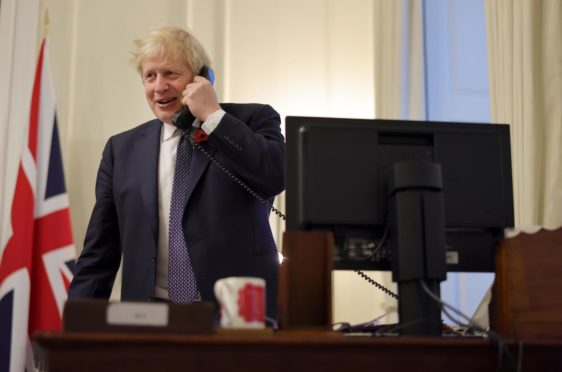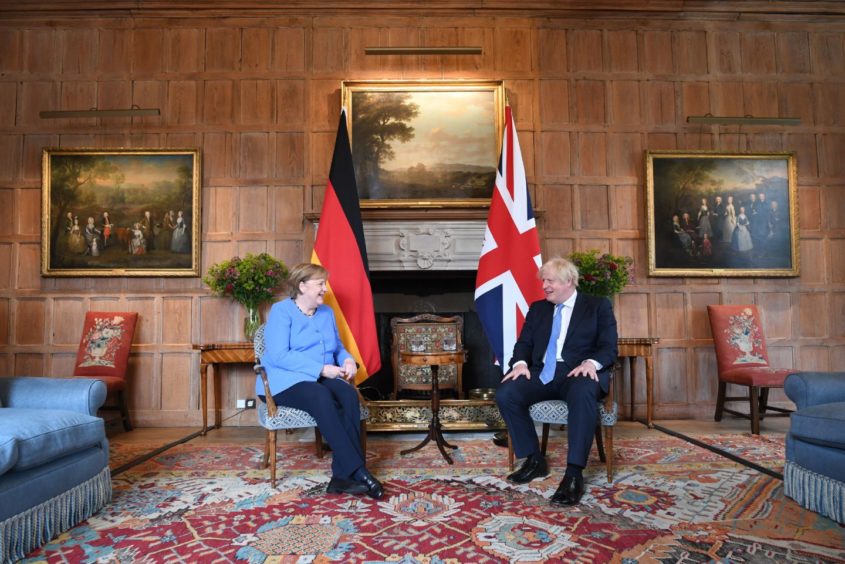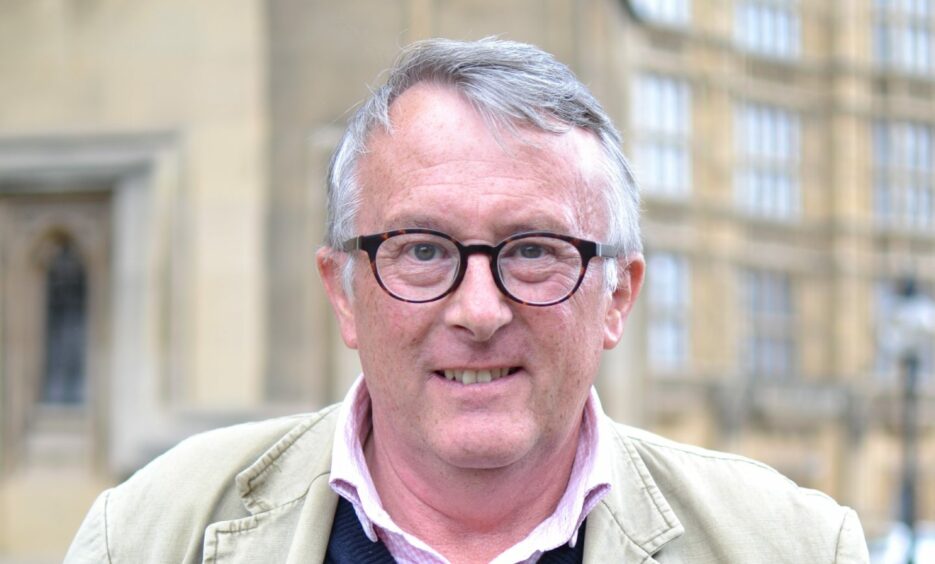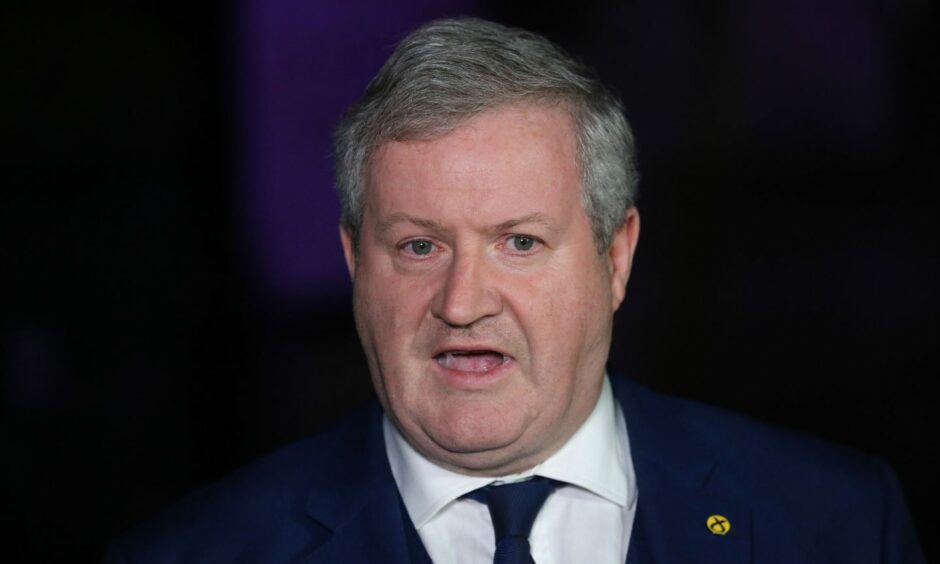Boris Johnson has reiterated the importance of an international approach to the growing crisis in Afghanistan as he seeks to convene a meeting of world leaders at the “earliest opportunity”.
The prime minister is pushing for a virtual G7 meeting to be arranged after the country fell to Taliban forces following the withdrawal of Western troops.
It is understood he raised the idea during talks with French president Emmanuel Macron on Monday and again during a call with German chancellor Angela Merkel on Tuesday.
Downing Street confirmed the UK wants the five permanent members of the United Nations Security Council (UNSC) – which, as well as Britain, includes the US, China, France and Russia – to meet this week.
The gathering would extend even further than the G7 alliance of Canada, France, Germany, Italy, Japan, the UK and US, with the prime minister keen for leading economies to act together on how to broach relations with a Taliban-led state.
It comes after the SNP called for a four-nations summit to be convened so representatives of the devolved administrations and UK Government officials can also discuss a humanitarian response to the crisis.
A Downing Street spokeswoman said Mr Johnson and Mrs Merkel agreed that “global co-operation was crucial” during their call, with the prime minister also stressing that the Taliban must be held to international standards on human rights.
Challenging partners
Foreign secretary Dominic Raab, who has been criticised for being on holiday as Taliban forces took the Afghan city of Kabul, warned the UK will have to work with “challenging” partners on its approach.
UK relations with Moscow have been strained in recent years, particularly since the Salisbury Novichok attack in 2018, while Beijing and London have been at loggerheads over China’s growing technological influence amid security and spying fears.
Mr Raab claimed it was impossible to predict the Taliban would retake Afghanistan so swiftly after the withdrawal of international troops, arguing “no one saw this coming”.
'We didn't know it was coming.'
Kate challenges the Foreign Secretary about why the UK government didn't see the Taliban takeover in Afghanistan was coming.
Watch GMB on ITV and on the ITV Hub 👉https://t.co/6iQ6ebeOEQ pic.twitter.com/wjn2ATHyIv
— Good Morning Britain (@GMB) August 17, 2021
He told ITV’s Good Morning Britain: “We’ll need a contact group I believe, of not just like-minded Western countries, but countries with direct influence even if we find it challenging dealing with them.
“The permanent members of the Security Council, including China and Russia, will need to be, I think, part of the solution, so it’s not going to be easy.”
Testing promises
Mr Raab said he thought the international community must “test” the Taliban’s resolve to keep promises previously made in their Doha agreement with the US, including ensuring terrorists do not take hold again in Afghanistan.
Taliban spokesman Suhail Shaheen said the group intends to uphold the agreement, including ensuring women can continue to work and access education, despite fears women and girls could lose rights gained over the past two decades.
"We respect them"
The Taliban says Afghan "women will be allowed to work" and it will guarantee their rights "within the limits of Islam."
Some experts, however, remain wary of the group's intentions despite such claims. Read more: https://t.co/uPrVg4HJWS pic.twitter.com/J1DWvmDlcp
— Sky News (@SkyNews) August 17, 2021
Mr Shaheen, asked whether he had a message for Mr Johnson, said the prime minister and all leaders of the world have a “moral obligation to also help to reconstruct Afghanistan and to help the people to start a new life”.
However, politicians and defence experts have warned terrorists will be free to operate under the new administration in Kabul.
Plotting their revenge
Liberal Democrat defence spokesman Jamie Stone said jailed terrorists were “now freely roaming the streets of Afghanistan” after the Taliban’s victory and predicted that backers of so-called Islamic State and al-Qaeda “will begin plotting their revenge on countries such as Britain”.
Mr Stone is calling on ministers to publish the national security assessment it conducted before pulling British troops out of the country, pushing for a vote when Parliament is recalled on Wednesday if they refuse.
The warnings come as Downing Street said Mr Johnson is planning to unveil a “bespoke” resettlement scheme to allow fleeing Afghans to set up home in the UK.
Mr Raab – who has faced criticism after reportedly being spotted on a beach in Crete on the day Kabul was seized by insurgents – said he was unable to confirm how many refugees would be coming to the UK from Afghanistan, but added it was “right” to consider a bespoke process for Afghan nationals.
SNP Westminster leader Ian Blackford said the UK should agree to take in a similar number to those accommodated under the 2014 Syrian Vulnerable Persons Resettlement Scheme.
Speaking on Good Morning Scotland on Tuesday, Mr Blackford said around 35,000 Afghan refugees could be given asylum in the UK under a similar scheme.
He added: “While it should draw inspiration from the Syrian resettlement scheme, it is crucial that this scheme moves far more quickly so vulnerable Afghans aren’t stuck waiting for up to five years just to get to safety and refuge.
“And focus must be on those who will be at most risk remaining in Afghanistan under the Taliban regime, including women and children and those who have worked for and with the UK Government.”



